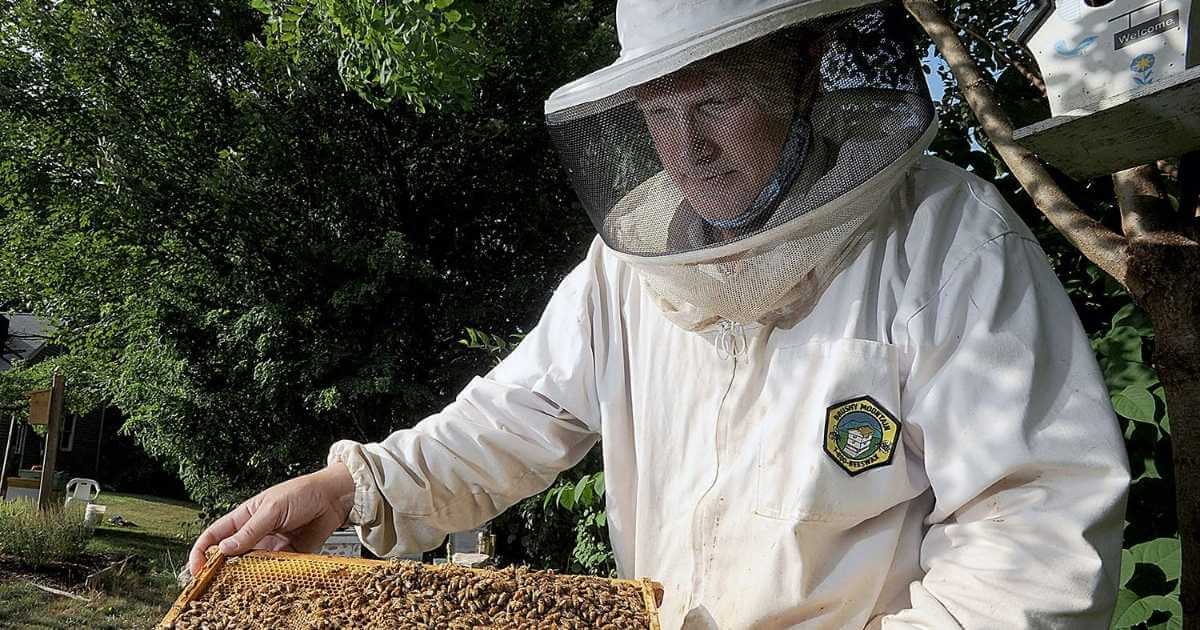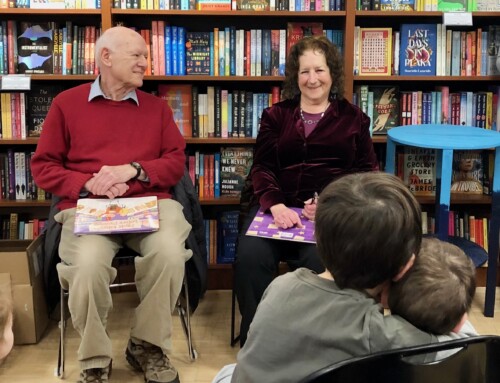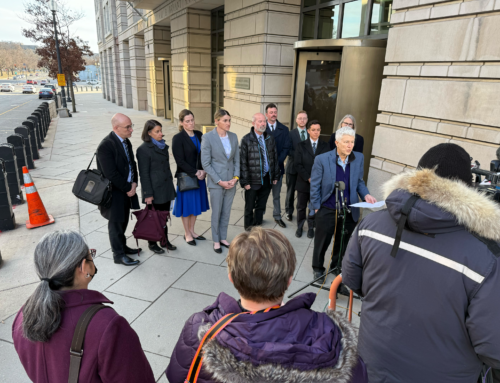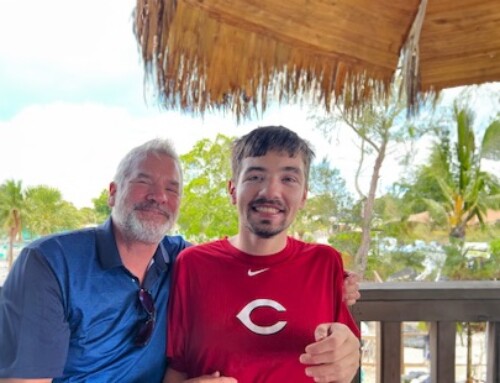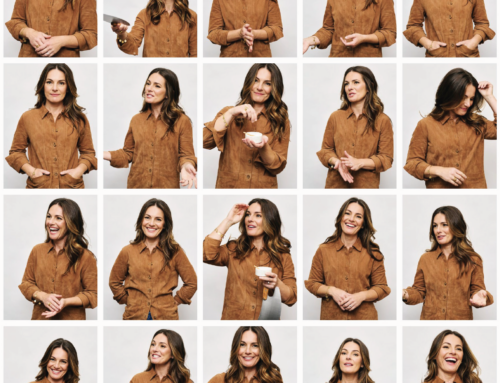Buzzing with Hudson Hives
Jun 3, 2021
Micro-batching raw, unfiltered and unpasteurized honey is the key to unlocking its healing properties. When Stephen and Jen Burney decided to flip their backyard hobby into a full-grown business, they didn’t want to let go of the qualities that they had so carefully cultivated. In 2016, the couple combined their talents and interests (Jen is a certified herbalist and aromatherapist, Stephen is an accomplished beekeeper) and opened Hudson Hives, building their business on three founding principles: sustainability, community and care.
My knowledge of bees and honey took a less methodical route. As a deaf child, I was introduced to my first “bee.” It was a television teacher dressed as a bee, with antennas swaying from the top of her head as she danced about the classroom, flexing her arms at the elbow (I envisioned them as wings) chanting “Buzz! Buzz!” The simple repetition was something I could easily lip read and I shared it with my mother … over and over and over and over until she finally gave me a taste of honey on my morning oatmeal.
With the loss of my sight well into my adulthood, my sense of taste grew exponentially. I could easily detect the floral undertones of honey and learned to tease out the uniqueness I encountered in various batches. You might say I gained an even greater appreciation for what bees could bring to the table. Buzz! Buzz!
Hudson Hives prides itself on bringing honey straight from the hive to the jar, packed with nutrients and health benefits, just as mother nature intended.
Q: You started Hudson Hives four years ago. Can you tell us the path that led you there?
A: Growing up I (Stephen) spent my summers in Ireland helping out on my grandparents farm. A cousin in Ireland was a beekeeper and I was always in awe at how amazing bees and beekeeping was. I had always wanted to be a beekeeper and in 2015 I took a beekeeping course through the Worcester Bee County Association and got my first bees that spring. I started with two hives. The following year I doubled the beehives and in 2017 Hudson, MA (where we live) announced it was starting its very first farmers market. Jen and I decided that we wanted to participate in the farmers market to be a part of the community. We had previously done farmers markets in Harvard, MA years back selling herbs, tomatoes and soup mixes; our three year old sold “Emma’s Stinky Breath Dog Treats” with proceeds going towards a local dog shelter. So when Hudson announced it was starting a farmers market we signed up. We sold honey. People loved our honey and asked “how can we get your honey once the farmers market is over” so we created a website. We were also approached by some of the local specialty shops who asked to carry our honey. Mullahy’s Cheese Shop in Hudson, MA was the first retail shop where our honey was sold. We added more hives to our apiary, then the second year we added Maynard’s farmers market and a couple more stores. We continued to grow and added more hives and stores and now participate in four farmers markets (Hudson, Maynard, Westford, and Shrewsbury and are sold in over 30 local stores/platforms and we sell on our website. We ship honey all over the United States (as far as Hawaii) and also allow people to pick it up at our location (contact free pickup) and offer free delivery in Hudson, MA.
We also do sensory honey tastings and bee tours to educate people about ways they can help save the bee; we do this at the library, senior center, girl scouts etc… Before becoming a beekeeper I was and still am a Radio Frequency Engineer and Jen is an urban planner, herbalist and aromatherapist. We make a great team because Jen grows many of the herbs used in our products, such as our Elderberry Wellness honey which she infuses elderberry, Astragalus and other herbs and spices. She also makes lip and body balms infused with herbs.
Q: What defines the different honey flavors? How do bees do this and how do you know which hive has which?
We actually put a small radar system on each bee so we know which flower she is traveling to. Just kidding! Actually, the color, scent and flavor of the honey is determined by the bee and which plants the bee is collecting nectar from. The honey flavor can change season to season and hive to hive. Our Spring Blossom Honey has a sweet floral flavor and gets its flavor from early season plants such as apple, pear, cherry blossoms, dandelions, clover and Spring wildflowers and herbs.
Summer Wildflower Honey is a darker color with a more robust flavor coming from the plants bees are collecting nectar at that time, such as goldenrod, Japanese knotweed, squash, pumpkin and summer wildflowers and herbs. Its richer color and deeper flavor reflect the rich colors of summer.
Our varietal honeys, Japanese Knotweed Honey, Wild Blueberry Honey, Orange Blossom and New England Cranberry Honey get its flavor from the plant it is named after. These hives are placed in large tracts of Orange Groves (Orange Blossom Honey), Blueberry fields, Cranberry Blogs and Japanese Knotweed fields, to ensure the bees find the majority of their nectar from the right plant.
Japanese knotweed is an invasive plant but is an important nectar source for bees as the plant blossoms late season, which provides a nectar source for bees when nectar is scarce. Japanese knotweed honey is dark and has an earthy, nutty sweet flavor that stands up well to intense flavors and cooking methods.
Wild Blueberry has a light amber color with a bolt of blue and has a flavor that oozes sweet blueberries.
New England Cranberry has a light amber color with flavor that oozes tart red cranberries with a warm cinnamon spice flavor.
Orange Blossom has a delicate light color and has a fruity, floral flavor.
Because of COVID we haven’t been able to offer honey tastings at our farmers markets and have moved to conducting them on ZOOM. People are blown away by the flavors and colors especially if they have only tasted supermarket processed honey that is often adulterated and highly processed, removing all the properties of raw honey leaving behind just a sugary syrup.
Our Sensory Honey Tastings are a full sensory experience where you are learning and experiencing the color, scent, texture and taste of the honey.
Q: Were you always honey lovers? What flavor is your favorite? Jen? Stephen?
Yes! We are both tea drinkers and have always loved to put honey in our tea.
I (Jen) love all the different honeys but my favorite is spring honey. I’m a tea drinker and use spring honey daily.
I (Stephen) love all the flavors as well and have to say I too like the Spring best because, like Jen, I like to drink tea. The spring honey is sweet and floral and is delicious in tea. A close second is our Japanese Knotweed. This makes a great marinade for steak tips. I mix Japanese Knotweed, soy sauce, fresh garlic and ginger and marinate steak tips in the fridge for a few hours. You could also use this on chicken, tofu or salmon. Yummy!!!
Q: Is unpasteurized honey the same as raw? People are cautioned against drinking unpasteurized milk, what makes unpasteurized honey safe?
Raw honey is unfiltered and unpasteurized honey. It retains all the health benefits, the color and taste that mother nature intended. Beekeepers will lightly filter honey to remove bee parts and large wax pieces but it is not ultra filtered or heated to high temperatures like filtered and pasteurized honey is.
Honey is not recommended for infants under age one. This is a recommendation by the American Academy of Pediatrics. Raw Honey is not heated up. Pasteurized honey is heated up to a very high temperature which destroys the medicinal properties of honey.
Raw honey or unpasteurized honey may contain “Clostridium botulinum” which are spores that can lead to botulism poisoning. In adults the amount of botulism spores ingested (if any) from honey is quite negligible because our bodies can destroy and fight off any toxins that botulism bacteria can produce through the acid our bodies produce. Adults can handle small amounts of botulism spores easier than babies.
Q: What are the medicinal properties of honey? Do you personally use it in this way?
Raw unfiltered honey retains all the goodness of honey that mother nature intended. Raw honey retains bits of wax, pollen and propolis. Honey has been used for thousands of years for its medicinal value. Honey can be used to soothe sore throats. People like “local” honey as it helps with allergy relief because of the pollen that remains in raw honey (it’s recommended to take a teaspoon a day before allergy season begins, though most people consume honey year round). Honey also makes a great facial mask as it is a humectant (reduces moisture loss). To do this, gently heat honey and spread it on the face for fifteen minutes. Your skin will feel amazing. Honey also has healing properties that help to heal boo boos and scrapes. Just spread a bit of honey on the wound.
We have two wellness honeys:
Durty Honey is infused with pollen and propolis. Pollen as mentioned above helps to alleviate the symptoms of allergies and also is a natural energy enhancer as it is the only plant source that contains vitamin B12. Propolis, also found in honey, has anti-bacterial and antifungal properties.
Elderberry Honey helps balance and strengthen immune system function. We created this honey during COVID as people were concerned about immune systems. We infused raw honey with Elderberries, Astragalus root, ginger root, cinnamon and cloves.
As an herbalist and aromatherapist I (Jen) take three items with me when I travel: honey, lavender essential oil and tea tree essential oil.
Q: What impacts your business the most? Weather? Hive health? What are the risks and what are the rewards?
Hive health has the biggest impact. The average beekeeper loses close to 45% of their hives yearly. Pesticides, pests, diseases, colony collapse disorder, habitat loss, weather and global warming all have impacts on the hive. The rewards are seeing a hive make it through a difficult winter and being able to harvest the honey in the summer and the fall. There is nothing like sitting in a chair watching the beehive activity and watching the bees fly back and forth. Beekeeping is very relaxing and zen.
Q: What is the most striking difference between your honey and a more industrial product?
Ask anyone who has taken a sensory honey tasting class with us. The color, the scent and the taste is striking compared to the highly processed honey found at grocery stores. They all taste the same. Each of our honeys has its own unique color, scent and taste. Our curated varietal honey sampler is the best way to sample our honey and appreciate these distinctions.
Q: Where do you see your business in five years? Is the demand for honey growing and why?
It is amazing how far we’ve come in the last four years. A backyard beekeeper and an herbalist who had a passion that grew into an unintentional business. From the first farmers market in 2017 to 2021. In five years from now we want to have a destination. A place where people can come and spend time in our lavender fields and pollinator gardens, meet the bees in our apiary, experience a sensory honey tasting, take workshops, and visit our retail store. Doesn’t it sound amazing?
Q: What does Hudson Hives need more than anything right now to produce more awareness about the use and importance of sustainable honey production?
We have always been about education and sharing ways to help save the bee. This is why we recently created our Hudson Hives Bee Project. We are still waiting for state approval. Our goal is to educate people about honey and the importance of the bee. Without the bee we would not have honey. Without the bee we would not enjoy so much of the food we enjoy daily. The honeybee is responsible for pollinating 70% of the world’s food such as coffee, apples, oranges, blueberries etc.. Food would become scarce and expensive.
People need to be aware of ways to help save the bee. Mow your lawn less, let the dandelions and clover grow. Bees love them! Plant flowers and herbs in gardens or even on pots on the deck. Avoid the use of pesticides on your lawn. And do not purchase plants that have been treated with chemicals or pesticides. And support your local beekeeper who loves his/her bees more than anything!
Q: You list your founding principles: Sustainability, community, and care. How do these manifest in your business?
I think our statement on our website sums it up perfectly. This is reflected not only in Hudson Hives but our personal lives. We both care so much for our planet, community and of course the honey bee. Every decision we make is based on our founding principles.
We only use glass bottles that can be recycled and/or reused. Many of our customers return the bottles which we sterilize and reuse. We support other local businesses, we want to be a part of the community by participating in farmers markets. We place beehives not only at our location (which would be easier) but also at other local gardens, restaurant rooftops and nearby orchards. And we care deeply for the honeybee. That is our number one priority. To help the bee and beehive survive.
Personally, we both are deeply involved in the community. Jen along with three others started the Hudson Community Garden and both of us have collectively done 20 medical missions to countries such as Nicaragua and El Salvador. We deeply care for our planet, for insects such as the honey bee and people.
When we started Hudson Hives four years ago, we knew we wanted to build our apiary a little differently. Sustainability, community and care are our three founding principles, and we practice each of these in every aspect of our business.
While many other beekeepers might see bees as a commercial opportunity, and honey as nothing more than a commodity, we see it as something greater. Beekeeping, and honey production are some of the oldest practices in civilization. The ancient Egyptians kept bees, and so we see our humble operation as part of a long and wonderful lineage that stretches back thousands of years.
Our approach means we neither use our bees for commercial pollinating operations, nor dilute our honey with artificial additives. Instead, we focus on letting our bees roam and forage freely. Our hives are located on our biodynamic farm, which has herb & flower gardens, as well as carefully selected neighboring backyard gardens, orchards and local farms. We believe that this not only creates a better product, but is best for our bees’ health, which is reflective of who we are.
Just as Mother Nature intended, our honey is raw, unfiltered, unpasteurized, and harvested in micro batches to retain all of the antioxidants, amino acids and pollen. This all is lost in large-scale produced honey. Each of our honeys is unique in color, aroma and flavor as a result of the nectar and pollen collected by our bees.
Finally, we support other local beekeepers in our community. This not only lets us offer a broader range of varietals, but it also ensures that our community remains strong and healthy.
Q: Have you ever been afraid of being stung? How often does it occur?
Honeybees are gentle by nature. They only sting when protecting the hive or the queen. Unfortunately the honey bee dies right after it stings, as its stinger rips out its intestines. Wasps, yellow jackets and hornets do not die and will sting multiple times. The best thing to do is leave a bee alone and they will leave you alone. Do not swat at a bee, that will only make them think you are harming them. Instead walk briskly away.
Jen – I have never been stung and I work in my garden beds right next to the hive. That’s not to say I don’t occasionally have a bee who is interested in what I’m doing. If they bother me I just walk away or go into the house and return back later. I was stung by a yellow jacket in the finger when I was at the Maynard Farmers Market two years ago doing a honey tasting. Apparently this yellow jacket was mad that I was giving out honey samples and wanted the honey all to itself.
Steve – I have been stung 47 (strike that number, Steve got stung the day after writing this response so now is up to 48) times since I started beekeeping. Often it is my fault. Once I was eating a banana on our deck underneath a flowering plant. I had a honeybee fly next to me that must have gone back to get her friends, because she returned with a few other bees. I didn’t get stung but I instantly realized that the banana smells the same as the bee warning pheromone. Their warning pheromone smells just like bananas! Bees communicate in many ways which include pheromones. When a beekeeper uses a smoker he is preventing the bees from sharing their warning pheromone and forces the bees to huddle at the bottom of the beehive so the beekeeper can inspect the upper portion of the hive.
